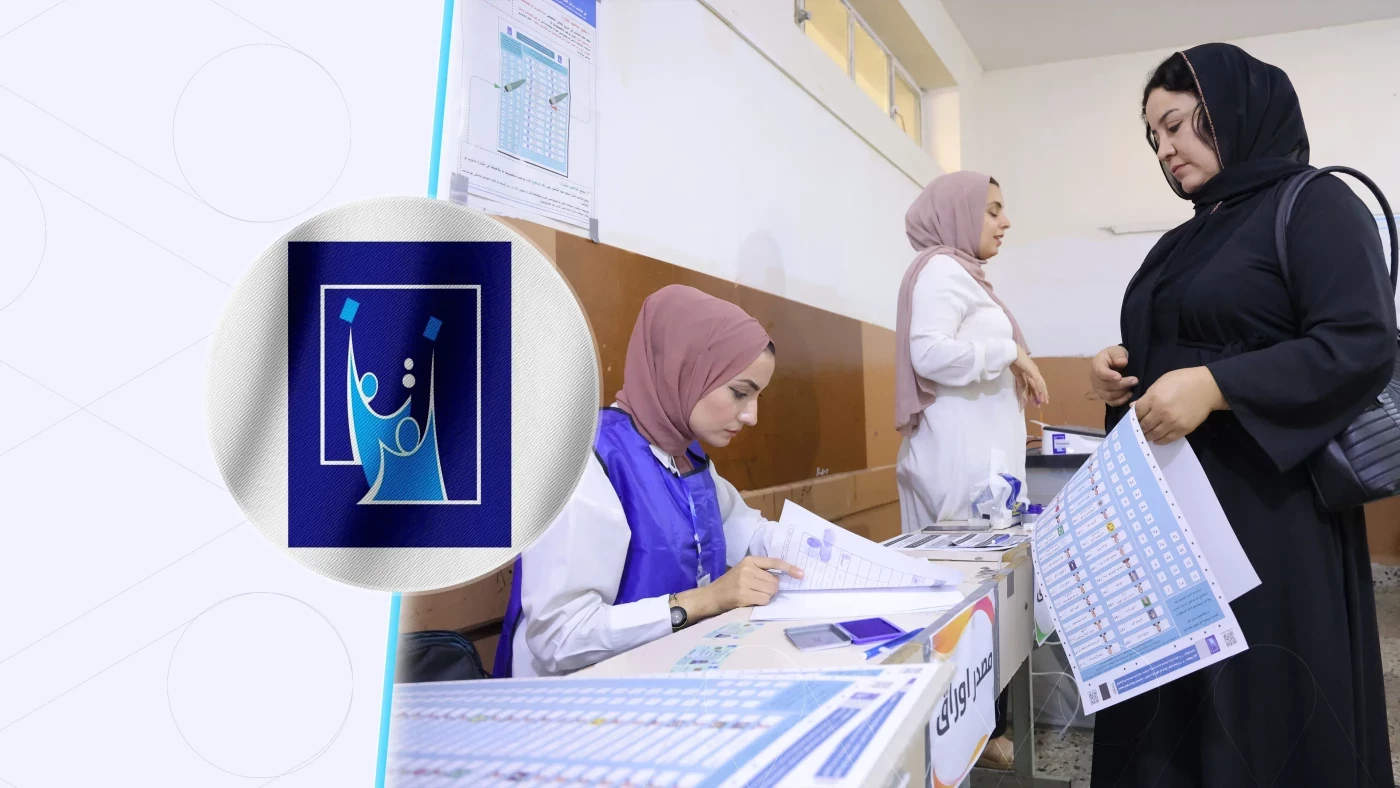ERBIL, Kurdistan Region of Iraq - With the Iraqi Independent High Electoral Commission (IHEC) continuing to exclude candidates from the upcoming parliamentary elections, now totaling 627 names from various political blocs and parties, the government insists these measures are purely administrative and legal steps to safeguard the integrity of the process. Yet many others view them as a “political weapon” deployed to shape the electoral landscape and reset balances within Iraqi politics.
Political and electoral affairs specialist Ali Nasser believes that political conflicts have played a significant role in sidelining candidates.
“After nearly 8,000 candidates registered across Iraq, the first time such a large number have come forward, potentially reshaping the way we view eligibility and political awareness, we see many names, especially well-known ones, excluded by the Commission,” Nasser told The New Region. “The reasons range from issues of reputation and good conduct to crimes involving moral turpitude or failure to meet candidacy requirements.”
He added that “political rivalries likely play an important role in removing rivals from the process to gain more parliamentary seats. The elections, which should be held on time and not postponed, carry immense importance given Iraq’s critical situation. External agendas may also have a strong influence on Iraq’s domestic scene, fueling widespread suspicions.”
Nasser further warned that “as we have seen before with efforts to sideline key figures, cases of murder and corruption will probably account for the largest portion of exclusions in the future. We expect more once immunity is lifted from certain accused members of parliament and they are handed over to the judiciary.”
Political scientist Ghazi Faisal described the exclusions as a deliberate political tool. “These exclusions raise many questions,” Faisal told The New Region. “They differ from previous elections, when sidelining candidates was often justified by the Accountability and Justice Law or through court rulings and open legal cases. This time, the process seems vague, lacking transparency for the public, and much more politicized. The Commission appears less like a neutral administrative body and more like an instrument reshaping the parliamentary map.”
Faisal noted that many exclusions came shortly before the launch of campaigns, disrupting party strategies. “In the past, such decisions sometimes came earlier, giving blocs time to replace excluded candidates,” he said. He went on to divide the motives behind the exclusions into three levels. The first is legal and procedural: corruption cases, misuse of public money, ties to illegal armed groups, breaches of campaign rules, or unresolved lawsuits. Yet, he argued, these explanations lack credibility due to poor transparency.
The second is an attempt to re-engineer balances: powerful actors aiming to weaken rivals by targeting prominent independents or opposition voices within Shia, Sunni, or Kurdish politics, while also reflecting regional and international pressures. External interference, particularly Iranian and American, is widely suspected, especially with shifting balances after the international coalition’s withdrawal and the decline of direct US influence.
The third is an effort to block protest movements, targeting the Tishreen movement or other popular opposition forces that could disrupt expected results.
“The authorities and Coordination Framework parties justify these steps under claims that some candidates are linked to ISIS or dangerous armed groups,” Faisal added. “But it is clear these arguments are often applied selectively. The current exclusions are not ordinary administrative measures. They are political maneuvers to reset the scene in advance. Unlike in the past, decisions are no longer purely legal or technical; they are weapons to weaken potential rivals.”
He also outlined several possible scenarios for how these exclusions could shape Iraq’s politics. The first is a reproduction of parliament under the control of traditional forces. With opposition and independent figures removed, parliament could be dominated by established blocs, the Coordination Framework, Kurdish parties, and traditional Sunni forces. The result would be a parliament more aligned with regional powers, especially Iran, and a government formed with relative ease. But such a parliament would lack popular legitimacy, offer little chance for reform, and risk widening the trust gap with society, possibly sparking new protests.
The second scenario is political confusion and disputes over legitimacy. If objections grow and are pursued legally or politically, the election could enter prolonged judicial battles. Some groups might boycott or obstruct the process, seats could face recounts or annulments, and government formation could be delayed for months. This path risks a full-blown legitimacy crisis.
A third possibility is the rise of new alternatives despite exclusions. Lesser-known independents, tribal leaders, or local figures could fill the vacuum, creating a parliament that mixes traditional blocs with unexpected new faces. These newcomers may bring a limited reformist or protest agenda. Yet their actual influence would remain small compared with the dominant blocs, serving more as a symbolic reminder that change is possible.
Finally, a fourth scenario is the emergence of parallel street protests alongside the political process. If people believe the elections are tailored to benefit ruling elites and silence alternatives, a new protest wave could erupt after the results. Coupled with economic troubles or corruption, the public might demand the dissolution of parliament or the post-election government. This scenario carries major risks of political instability and wider international intervention.
Faisal concluded that “the exclusions may deliver a surface-level stability, but they risk creating deeper legitimacy crises. The most likely outcome is a mix of traditional forces dominating parliament and the streets returning to confrontation.”



 Facebook
Facebook
 LinkedIn
LinkedIn
 Telegram
Telegram
 X
X


